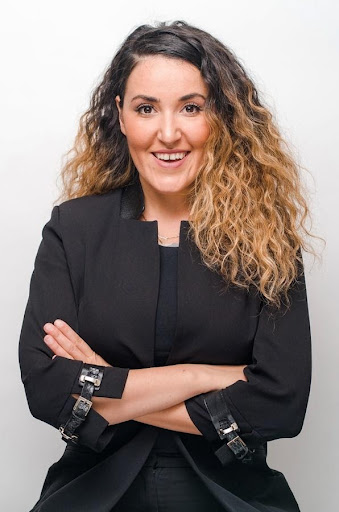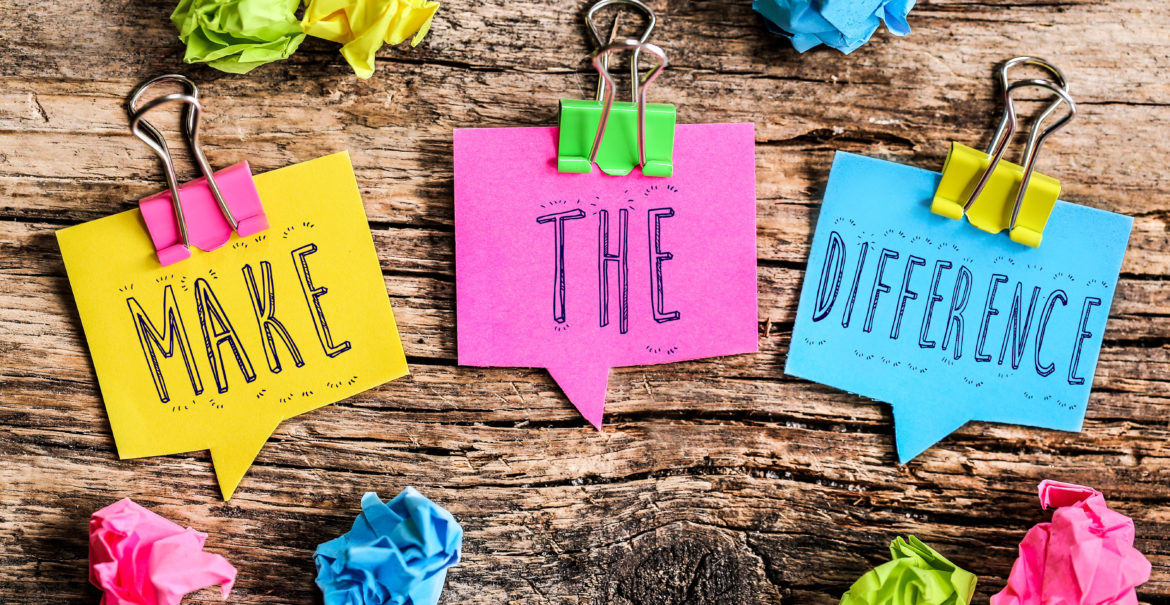
Euxhenia Hodo is a Human Rights advocate, based in New York City. She currently works for the John Jay College of Criminal Justice on inclusive programs.
Here is what Euxhenia had to say when we asked her about human rights:
GenHERation®: After moving to the U.S. from Albania, what were some of the biggest challenges you faced and how did you overcome them?
Euxhenia Hodo: My story once moving from Albania is not quite different in essence from the story of many other people all over the globe who migrate to the U.S. for a better quality of life and education. I was 23 when I moved here, and in the very beginning I was intimidated and a bit anxious about almost everything new around me. My English was good; however, Google Dictionary was my go-to at the time. I had three different minimum wage jobs, a full-time degree in International Criminal Justice, and no life—it was a good time though! Those first two years taught me to really focus your mind and energy on the things that mean the most to you. My degree and excellent results meant the most to me at that time, so I locked my brain into that goal and nothing else could ever distract me. I go by that rule today and I always will. I did miss my family though, especially my sister as we were pretty tight and close to one another. Although it was challenging coming to the U.S., I learned to turn weak moments into strength.
GenHERation®: With many human rights issues present in today’s society, what sparked your particular interest in women’s rights and immigrants’ rights?
Hodo: Besides being an immigrant myself, I have seen firsthand how classism works in this country. If you don’t make enough money, or are a woman, black, or brown, you are going to get treated differently on many levels. This starts with the healthcare system and access to service and medication, which directly intersect with the right to quality education, fair opportunities in the job market, financial knowledge, and the ability to own real estate. Now imagine being so focused on surviving that you eventually have no time for education. I imagine it can get tough, so that’s why I decided to be a voice for change. Unfortunately, change cannot happen overnight. It takes decades, and it’s important to keep the momentum going to inspire other people and keep the flame protected.
GenHERation®: How can you connect with people who have different backgrounds than you do?
Hodo: I actually try to connect with people who have different backgrounds than me! That’s how I learn to navigate issues that I may not have experienced or even think about. Immigrant communities have strong ties in the U.S. I love my culture, people, and where I came from, but as an advocate and educator I make it my business to connect with different people who have grown from different experiences than I have.
GenHERation®: What are three ways you can ignite change for a cause you care about?
Hodo: In order to ignite change you first have to narrow down what you care about. For instance, human rights is a huge topic. In order to make change in the space, you have to identify what you are specifically passionate about. Within human rights, is it women’s rights, immigrants’ rights, and so on? Once you pinpoint what you specifically care about, then you have to do the groundwork. Step into the shoes and environment of the people you want to help, so you can get a better sense of their needs, wants, and challenges. You need to experience what people are going through, and not just hear about it or read about it. If you want to help the homeless, visit a homeless shelter and connect with those who have nowhere to live. Additionally, when you want to ignite change be expected to compromise. I am a white immigrant woman. Not everyone I try to help identifies similarly to me, so I can be met with resistance. Don’t let this discourage you. Figure out how you can explain your viewpoint, while meeting people where they’re at, so you can move forward.
GenHERation®: How can you make sure that your voice is heard?
Hodo: When I start working on a project, whether it be about food security, career development, access to textbooks, sexual rights, or healthcare, I make sure that my voice is heard. I speak up. I share my viewpoints and goals. You can’t make a difference if you’re not heard. There’s no way around it. It can be intimidating to use your voice in a room filled with strangers or people who have opposing beliefs than you do. However, you can overcome this by being prepared. Do you research—know facts, statistics, and policies. Also, speak from your heart and convey your passion. Does speaking up come at a cost? Of course, but it is worth it. It’s worth it to see families picking up their groceries at the end of the week, which they couldn’t afford. It’s worth it to see college students picking up free textbooks that cost $500. It’s all worth it and fulfilling.
GenHERation®: What are steps you can take to improve human rights every day?
Hodo: Not every day is a step. Meaning you don’t have to directly improve human rights every day in the sense that you get legislation passed or start a nonprofit. You can do so much in the human rights space by volunteering with underserved groups or reading about human rights issues in the news. I also want to remind you that working in the human rights space can be emotionally draining. You witness human beings being denied access to basic human rights, which can take a toll on you. That’s why it’s important to make time for your own growth and happiness as well. Read a book, talk a walk, and connect with friends and family.
Euxhenia Hodo is a Human Rights advocate, based in New York City. She currently works for the John Jay College of Criminal Justice on inclusive programs. She has served as the Chair of the Graduate Students Committee from 2019-2020. Prior to John Jay, Euxhenia worked with Intersections International and interned at the United Nations where she worked on gender-based violence for post-war victims. She is passionate about women’s issues domestically and internationally.



Comments (0)